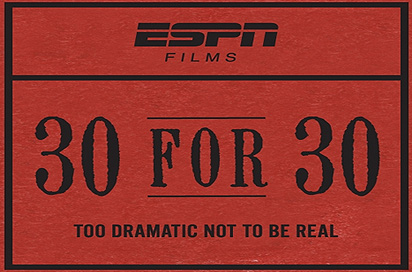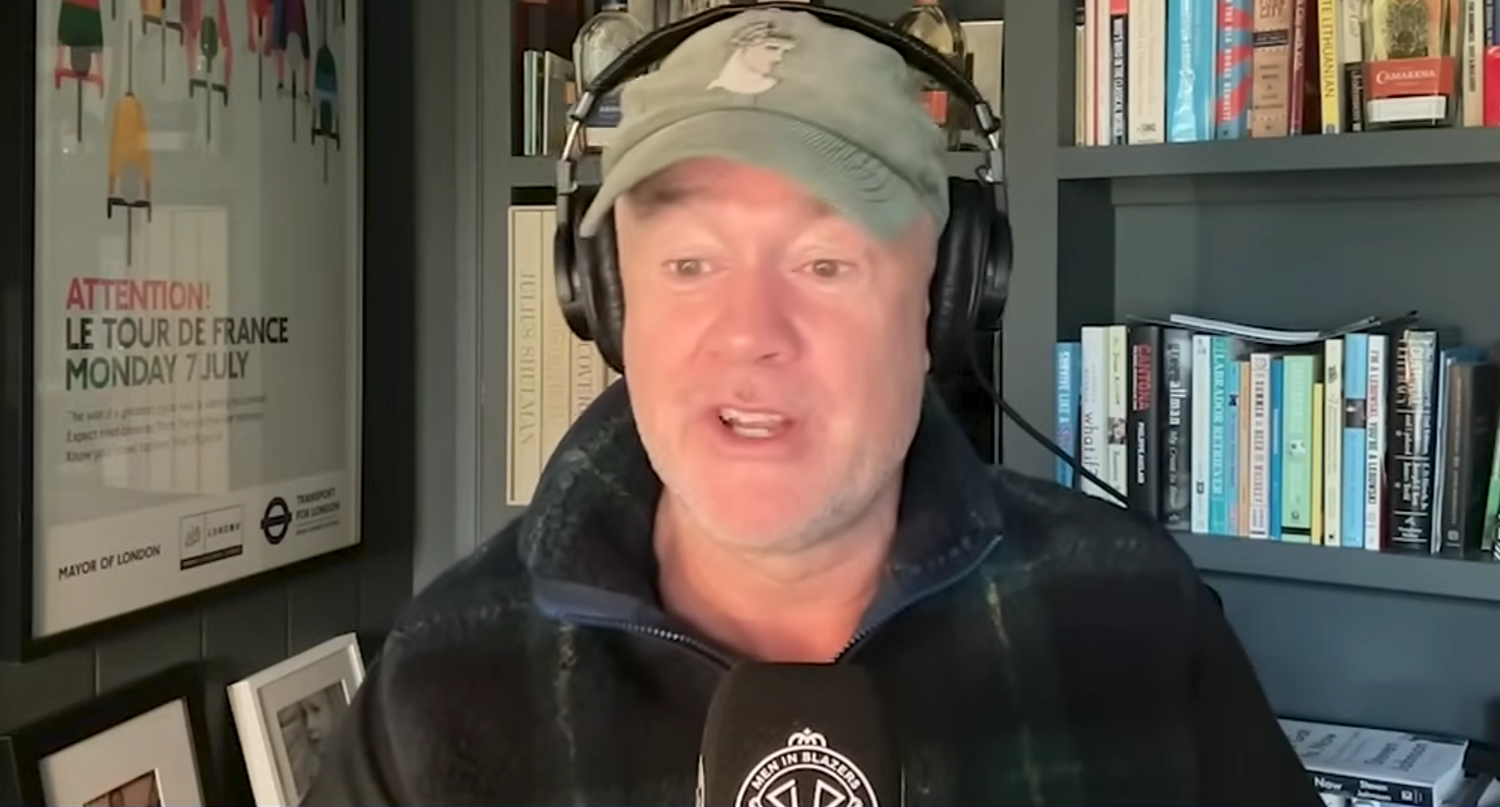
We had such a good time corralling the AA staff together last week to give our writers’ picks for the Joe Morgan Memorial Tournament Final that we’ve reconvened around the virtual AA roundtable once again. Ryan’s article on the new 30 for 30 slate got us thinking about which sports stories we’d like to see given the 30 for 30 treatment. I’m sure the higher ups at ESPN take note and these ideas will hit the small screen soon…
Question: What sports story of the last 30 years would you love to see made into a 30 for 30 documentary and how would you tell it?
Matt Yoder: As an insane Saints fan, my choice is a bit biased. The story of the New Orleans Saints and the city of New Orleans, from August 29, 2005 when Hurricane Katrina made landfall in Louisiana to February 7, 2010 when the Saints won Super Bowl XLIV is one of the most remarkable in sports and would be perfect for ESPN’s 30 for 30.
The central narrative would be the relationship between the team and the community and how the building of the Saints championship team paralleled the rebuilding of New Orleans. The Saints and their city have a unique relationship that is rarely seen in the days of franchises continually turning their backs on fans, free agency, and the gulf between fan and athlete becoming wider. With the Saints returning to New Orleans in the aftermath of Hurricane Katrina, an already passionate fan base became irrevocably intertwined with their team. The Saints’ uplifting Super Bowl victory may have been one of the most meaningful to a particular community in history. Because let’s face it, if the New Orleans Saints can win the Super Bowl, then anything is possible.
Brady Green: I would really like to see a documentary on Bill James and the rise of sabermetrics in baseball. For better and worse, baseball hasn’t changed much since its beginnings. Out of all sports, baseball places the highest importance on stats when assessing a player’s value and up until somewhat recently, only a few stats were usually used.
Bill James didn’t agree with this, and took his obsession of baseball to another stratosphere of nerdom by creating an array of new stats in his Baseball Almanac. These Almanacs were largely made for other baseball tri-lambs that obviously represented an extreme minority of baseball fans. Still, those few fans and even GM’s that took the time to read them started to think about baseball in a completely different way. Personally, this reinvigorated my interest in baseball, once again making it my favorite professional sport. I love hearing the debate on both sides (I’m still somewhere in the middle) and I crack up whenever SportsCenter compares a player’s WAR (wins above replacement) stat every couple of months. GM’s all over the league (not just in Oakland) have been influenced by sabermetrics. It even landed James a job in the Sawks front office in 2003, which he still has today.
Matt Clapp: I think a great topic for a ’30 for 30′ would be the 1994 strike in regards to the Montreal Expos. The strike basically killed the Expos, or at least played a large role in the franchise ending up in Washington. Maybe they weren’t going to be able to afford to keep the team there regardless, maybe a new stadium wasn’t going to work out, etc, etc.
But they were the best team in baseball. They concluded the strike-shortened season with a record of 74-40, the best record in the majors. And, they had a six-game lead on the Atlanta Braves in the National League East. This team was going to the playoffs and they had a tremendous shot to win it all. The Expos had many players that were only to get better in the coming years, and mostly, for other teams. A 22-year-old Pedro Martinez. A 27-year-old Larry Walker. A 27-year-old Moises Alou. A 21-year-old Cliff Floyd. A 22-year-old Rondell White. A 27-year-old Marquis Grissom. A 23-year-old Kirk Rueter. A 27-year-old John Wetteland.
With the team at least going to the 1994 playoffs and having plenty of young talent that was sure to generate some fan interest, quite a bit more money was going to be made through attendance and merchandise/concession sales. But, we’ll never know what could’ve been.
Ben Koo: I think my top chice would be the story of the 1994 World Cup and how it changed soccer in America. While still a niche sport to a certain degree, soccer is now very relevant in the US. Before the US’s good showing and hosting of the 94 World Cup, the US had rarely even qualified for the World Cup in the 50 years previous. It was quite a historic event having the US team advance out of round robin play as well as play on their home soil on the 4th of July. I was lucky enough to attend that game and I think any USMNT fan will always remember that ’94 World Cup team just as many sports will always remember the basketball Dream Team. With the MLS growing and USA soccer now in a very solid place despite recent events, I think we need to pay homage to the start of it all.
Ryan Yoder: My initial idea actually had to do with soccer as well, except I was going to look at how American players like Tim Howard, Clint Dempsey, and Landon Donovan have fared playing abroad. I would want to chart their struggle to establish themselves at home and in the EPL and compare it to the struggle soccer has had establishing itself in the USA. The true culture of soccer in England is something even the most rabid football fans here in America can’t even begin to grasp, and seeing that through the eyes of some of our best soccer exports could be really cool.
For a non-soccer story, I’d like to focus on the life of Maurice Clarett. ESPN’s 30 for 30 has had some of its best success following the lives of fallen stars, and perhaps nobody has fallen further than Maurice Clarett. However, even after leaving Ohio St. as a freshmen, failing as a draft pick to the Broncos, and being put in jail, Clarett has continued his struggle to survive. His jailhouse diary opened eyes to the growth of an immature boy to a man. From his rough beginnings in Youngstown through his troubles at Ohio St. and beyond, Clarett has experienced a roller-coaster ride few can imagine. The rise, fall, and redemption of Maurice Clarett could be a true classic.
Let us know what you think of our choices and also your ideas as well. What do you think should be made into a 30 for 30 documentary special?




Comments are closed.